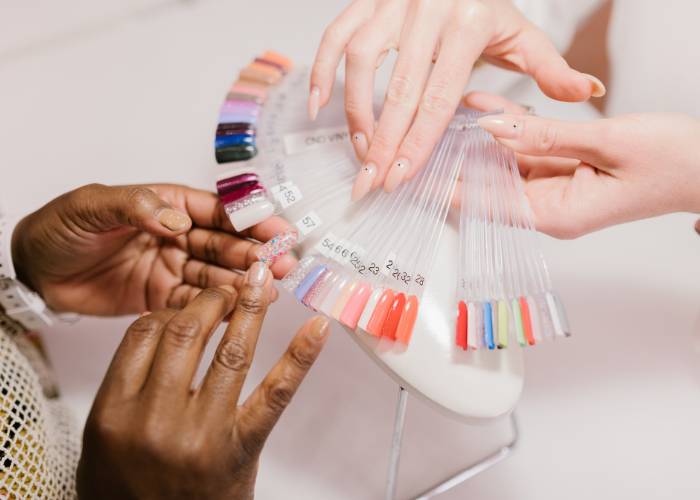Understanding Service Refusals: Can a Nail Salon Refuse Service?
Disclosure: Glam Startups may earn commission from some of the links in this post at no extra cost to you. Glam Startups is a participant in the Amazon Services LLC Associates Program, an affiliate advertising program designed to provide a means for the site to earn advertising fees by linking to Amazon.com and affiliated websites. Full details on our Affiliate disclosure page.
Walking into your favourite nail salon, you’re eager to indulge in self-care. But imagine the surprise and confusion if, instead of a warm welcome, you’re informed that you cannot be serviced today. This unsettling scenario brings to the forefront a crucial question: On what grounds can a nail salon refuse service? As we’ll uncover, the answer hinges on a delicate balance between the consumer’s rights and the salon’s obligations and policies.

Verdict: Can a Nail Salon Refuse Service?
Nail salons, like any other businesses, have the right to refuse service based on specific logistical, health, or behavioral concerns. However, these refusals must never stem from discriminatory practices, which are both unethical and illegal. While occasional service denials can arise from genuine reasons, clear communication and understanding from both the salon and the customer are paramount to ensure a harmonious relationship.
The Evolving Landscape of Consumer Rights:
Today’s consumer is more informed and empowered than ever. Laws and regulations, especially in the service industry, have been moulded over the years to ensure that customers are treated fairly. However, while a customer’s right to service is paramount, it’s not absolute. Salons, like any other business, have certain rights and obligations that might, in specific scenarios, require them to refuse service.
Reasons a Nail Salon Might Refuse Service:
- Overbooking or Heavy Customer Flow: Salons strive to offer the best service within operational constraints. Sometimes, due to technology glitches or simple human error, appointments might overlap or get double-booked. In such situations, salons might prioritize pre-booked appointments over walk-ins.
- Client Behavior: Most nail salons aim for a serene and peaceful environment. If a client exhibits disruptive or aggressive behaviour, it affects not just the staff but other patrons too. To maintain decorum, salons might choose to decline service to individuals who might disrupt the ambience.
- Health Concerns: Nail salons adhere to strict hygiene protocols. Salons are within their right to refuse service if a client presents with visible skin infections or conditions that could potentially spread or affect the quality of service. This is both for the protection of the staff and other customers.
- Technological Issues: With the integration of technology into booking systems, occasional hiccups are inevitable. An online booking might not sync with the salon’s system, leading to overbookings or double slots. It’s an inadvertent issue and usually resolved with rescheduling.
Legal Restrictions and Their Implications:
Nail salons, like all businesses, must function within the boundaries of the law. Discriminating against someone based on their race, gender, religion, or any other protected classification is not just unethical but illegal. Salons found indulging in such practices can face legal actions, heavy penalties, and the potential loss of their business license. Besides the legal repercussions, the social fallout in the age of online reviews and social media can be devastating for a business.
Best Practices for Nail Salons:

While refusals are not commonplace, when they do happen, the way they’re managed can make all the difference. Clear and empathetic communication is the key. Instead of a curt denial, offering a clear reason can help mitigate any potential ill feelings. Regular training sessions ensure staff are updated on both salon policies and legal regulations. Moreover, in scenarios where service is refused, gestures such as discounts on future visits or other conciliatory offers can go a long way in maintaining a healthy customer relationship.
Conclusion:
The relationship between a nail salon and its customers is built on trust and mutual respect. As consumers, it’s essential to be informed and empathetic. Simultaneously, salons must operate with transparency and fairness. In an ideal world, refusals would be rare and always justified. However, by fostering understanding on both sides, we can ensure a harmonious and rewarding experience for all parties involved.




